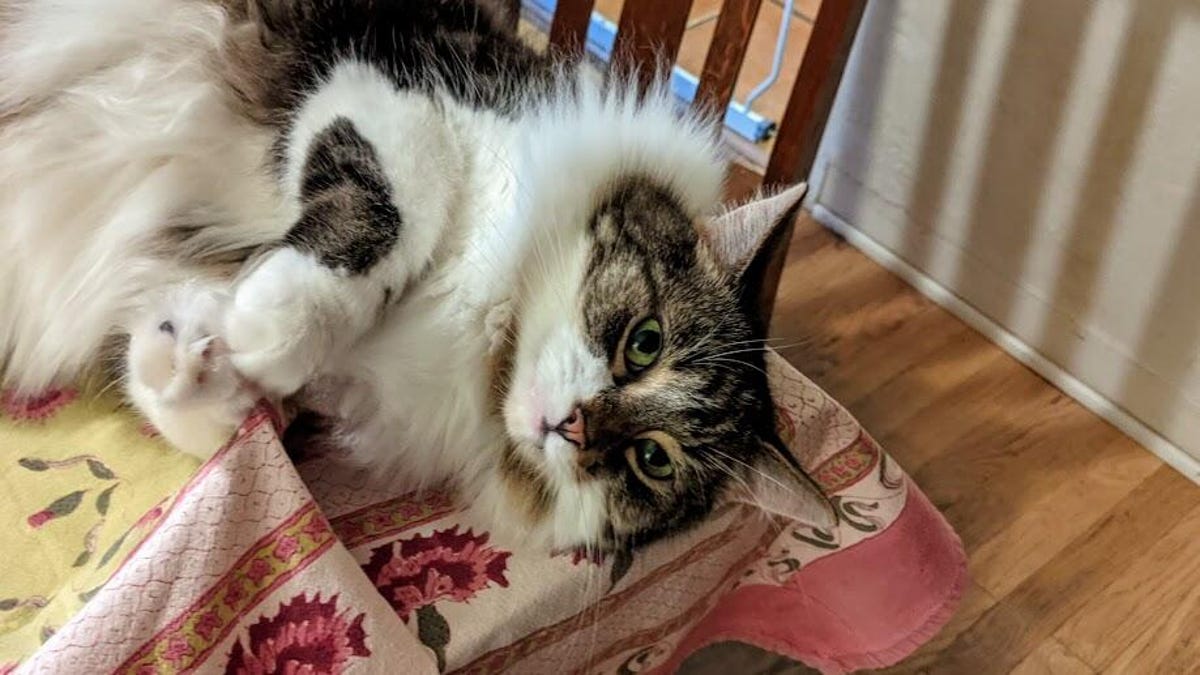Cats are food freeloaders, scientists say
Your kitty companion would probably prefer a free meal that requires no effort.

This cat would like food delivered and easily accessible, please.
Let's say you give your cat two options: a bowl full of kibble or what seems like a fun, enriching food puzzle that requires some work to get the snacks out. Chances are your cat will take the easy way.
A team of researchers at the University of California, Davis conducted a study to find out if house cats had any interest in working for their food. This might seem like a no-brainer, but the study cites previous research which showed that animals ranging from captive-living grizzly bears to domestic pigs preferred to work to obtain their food, even when they had easy, free options within reach.
"Contrafreeloading" is the term that describes an animal's willingness to work for food even if the same food is freely available. According to the study, cats aren't contrafreeloaders. The team published a paper in the journal Animal Cognition in late July.
The cats in the study had the option to eat from a tray or from a puzzle. They preferred the tray, though some did engage with the puzzle.
A previous lab experiment had suggested cats weren't into working for meals, but the researchers thought it might be a different story if a cat was comfortably hanging out in its familiar home environment.
The study tracked 17 house cats and gave them options to either eat from a tray or put in some effort to get their food from a puzzle. The cats preferred the tray. Out of the study group, the researchers only classified four of the cats as "willing to contrafreeload."
"There is an entire body of research that shows that most species including birds, rodents, wolves, primates -- even giraffes -- prefer to work for their food," said lead author and cat behaviorist Mikel Delgado in a UC Davis statement this week. "What's surprising is out of all these species cats seem to be the only ones that showed no strong tendency to contrafreeload."
The researchers used activity monitors and video cameras to follow the cats' activities. "It wasn't that cats never used the food puzzle, but cats ate more food from the tray, spent more time at the tray and made more first choices to approach and eat from the tray rather than the puzzle," Delgado said.
It's an open question as to why cats aren't that interested in working for their food. The researchers suggest it may be that the food puzzles don't stimulate the felines' natural hunting instincts.
"Understanding contrafreeloading is important for captive and domestic animal welfare as foraging enrichment is a frequently used tool to provide choice and mental stimulation," the study said. Future research with cats could involve trying out different types of puzzles or food items.
Though the puzzles might not've been preferred in the study, Delgado's previous research found that food puzzles can be a way to enrich a cat's life by engaging them in a challenge with an edible reward.
The other message Delgado conveyed is that freeloading cats aren't just being lazy. Even the most active cats in the study still chose the food tray. And who are we to judge? After all, humans invented fast-food restaurants.

